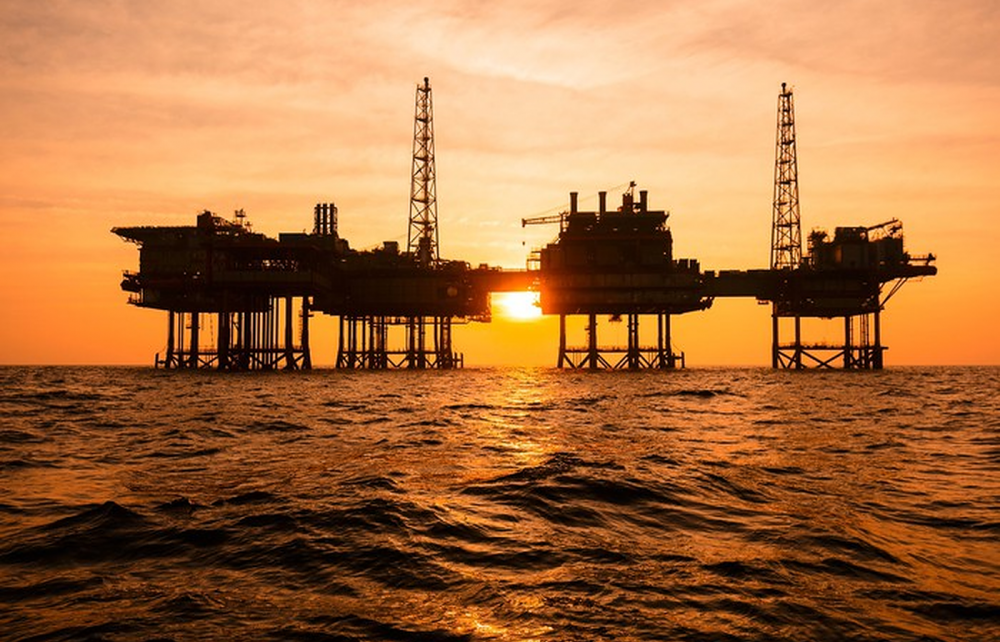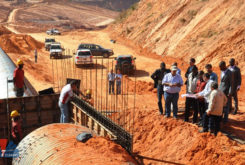The final investment decision for the Rovuma LNG natural gas project, in Mozambique, which was scheduled for this year, has been postponed, announced US group ExxonMobil, that partners with China National Petroleum Corporation (CNPC) for the project. The decision is part of the measures to respond to the economic consequences of the COVID-19 pandemic.
The group, in a statement issued on its website on Tuesday, added it was working with partners and with the government of Mozambique to optimise development plans by “exploring opportunities related to this lower-cost environment.”
The statement added that the Coral LNG development project continues as planned.
The group’s board decided to reduce investment spending by 30%, or US$10 billion, a measure related to the low prices of energy products as a result of the fall in demand. The previously announced investment expenditure amounted to US$33 billion which, according to the statement issued on Tuesday in Irving, Texas, has dropped to US$23 billion. The company also announced it was reducing current expenditure by 15% to, “survive this period of downturn.”
The Rovuma LNG project, which will extract natural gas from a deep-water block on the coast of Mozambique that contains more than 85 trillion cubic feet of natural gas, was due to receive the final investment decision in the first half of 2020.
The Area 4 block’s participants – Rovuma LNG consortium – are Mozambique Rovuma Ventures, a partnership owned by ExxonMobil, ENI and the CNPC, which together control 70% of the holding, with the remaining 30% split into equal parts between Portuguese group Galp Energia, South Korea’s Kogas and Mozambican state oil company ENH.
As previously reported by CL Brief, according to industry sources, Rovuma LNG was making the signing of the Final Investment Decision (FID) for the main natural gas exploration project in Cabo Delgado (Mamba) dependent on the resolution of pending matters.
The estimation of total investment between operators (ExxonMobil and Eni) and the consortium delayed the FID, with the goal of reducing costs as much as possible: the initial estimate had been increasing, mainly due to the “context costs” related to the worsening of security conditions in the province.
In 2017, the consortium closed the FID on the construction of a floating extraction platform, commissioned to KD Consortium, in the Coral Sul zone of Area 4, the first to go into production in the Rovuma basin, starting in 2022. However, the main source of gas has yet to be closed.
The difference between Coral Sul and Mamba is in the quantities: While the platform in Coral Sul will supply 3.4 million tons per annum (mtpa) of LNG from 2022, the Mamba zone should produce about 15.2 mtpa predictably from 2025. That’s nearly 4.5 times the estimate for Coral Sul and well above the 12.9 mpta estimated for Area 1, now operated by Total.
Compliance with deadlines depends on the FID, after which major work on the ground will begin. In October 2019, the consortium awarded the Engineering, Procurement and Construction (EPC) contract to the JFT joint venture (JGC, Fluor and Technip FMC) in the amount of US$500 million.
Still to be met is the condition related to the conclusion of negotiations with the government with a view to securing the construction and operation of Areas 1 and 4, especially the Afungi Peninsula complex where the infrastructure for receiving, transforming and exporting gas from the two areas will be located. Guarantees such as the reinforcement of military units, improvement of their training/preparation and the role of private security companies will constitute central issues that will have to be closed before the FID is formalised, according to industry sources.
This factor is also central from an economic point of view, taking into account that the greater risk implies greater investment in protection and prevention, as well as a general increase in insurance premiums, namely for human resources, partly made up of expatriates, in the project.
In naming his new government, President Nyusi named new ministers of Defence, Jaime Neto, and Interior, Amade Miquidade. The replacement of the previous incumbents was, according to party sources, dictated by the failure in addressing the Cabo Delgado insurgency, which has been growing since October 2017.
Insurgents have launched multiple attacks in the region, and last month routed the Government military to briefly take over the towns of Mocimboa da Praia and Quissanga. ISIS, via its local arm IS-CAP (Islamic State Central Africa Province) has claimed responsibility for major attacks.




